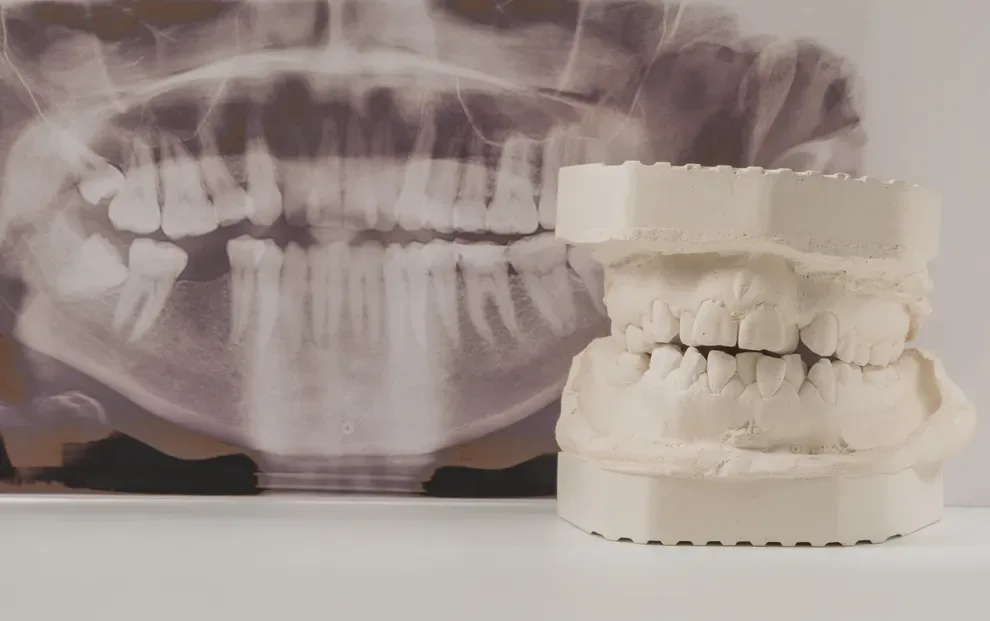Maxillofacial Surgery - What It Is and When You Need It

Table of Contents
- When Do You Need Maxillofacial Surgery?
- What Conditions Do Maxillofacial Surgeons Treat?
- Maxillofacial Surgeon vs. Oral Surgeon
- How to Find a Surgeon
- References
Maxillofacial surgery is a medical and dental specialty that involves diagnosing and treating complications of the face, jaws, teeth and neck. It addresses physical injuries and diseases that affect different parts and bones around the mouth and face. Facial cosmetic procedures are also part of this medical practice.
When do you Need Maxillofacial Surgery?
You may need to see a maxillofacial surgeon if your facial or jaw problem requires complex surgery. Your dentist or orthodontist may refer you to this specialist if your condition is beyond their scope of training and certification.
Maxillofacial surgery can also be part of a broader treatment plan after serious physical trauma to your face, skull or other nearby areas. A maxillofacial surgeon would collaborate closely with your other caregivers.
Left untreated any of these issues can adversely impact your quality of life and overall health. Reasons for maxillofacial surgery include:
To prepare your mouth and jaws for dental implant surgery.
To ease chronic pain associated with jaw/joint fractures.
To restore your jaw or teeth function, such as chewing, speaking, and swallowing.
To correct skeletal deformities affecting your facial/oral functions and appearance.
Treating babies born with facial tissue and bone complications, including deformities.
Before undergoing any surgical procedure on your face or jaws, you’ll be given a local or general anesthesia.
What Conditions Does a Maxillofacial Surgeon Treat?
A maxillofacial surgeon can treat the following facial disorders and injuries:
You may have difficulty chewing and eating when you injure or damage your temporomandibular joint (TMJ). This joint connects your jaw to your skull, and when injured, can cause pain when opening your mouth or moving your jaw. Surgery, non-surgical methods, and medication are the most common treatment options for TMJ damage or complications.
A tooth is impacted if it’s below the surface of your gums. Surgery may be needed to expose it, allowing it to erupt. This is one aspect of dentoalveolar surgery, which involves cutting into your alveolar bone, which forms the tooth sockets.
Sometimes, a child may have abnormally developed jaws and facial bones, which can negatively impact their dental health. Misaligned jaws can cause crooked teeth and bad bites, inhibiting the victim’s speech and chewing abilities. These issues can be corrected with orthognathic surgery. A maxillofacial surgeon will surgically move the jaws to the correct position, paving the way for proper teeth alignment.
Some people are born with deformed jaws and facial skeletons. Injury, disease, or developmental growth abnormalities can also cause these problems. Maxillofacial surgery can repair deformities by repositioning and reshaping affected facial structures.
t only are severe facial injuries painful, but they can also affect your vision and oral functions. When such trauma involves broken bones, surgical intervention is usually necessary. Treatments involve lining up and positioning fractured parts.
Cleft lip and cleft palate are birth defects that occur when a child’s lip or mouth tissue doesn’t join together completely. The deformities can be corrected with craniofacial surgery. A team of experts with the knowledge of treating skull and facial bone deformities are involved in the management of these conditions.
Certain diseases that affect the hard and soft tissues around your face and inside your mouth may require surgical treatment. These include malignant tumors and complications that cause damage to the jaw and facial bones. After initial surgery, maxillofacial surgery may be necessary to restore your oral functions.
When looking to replace missing teeth using artificial alternatives or dental implants are the most advanced option. These metal, usually titanium, posts replace tooth roots and aren’t removable. Since dental implant surgery involves cutting into your jaw bones, it is best performed by an experienced surgeon. A maxillofacial surgeon has the expertise to perform complex surgical procedures on the jawbone, soft tissue, and surrounding nerves. They can also participate in site preparations for implant surgery. Some patients require bone and soft tissue reconstruction before having dental implants.
Maxillofacial surgery may also be an option for patients with unwanted facial features, including due to aging. During the cosmetic procedure, skin and tissues may be extracted from other parts of the body for use in facial reconstruction.
This procedure helps to restore the functions of the jaw, facial bone, and facial tissues if damaged after injury or infection. It also involves the grafting of tissues or bone from other body parts.
Maxillofacial Surgeon vs. Oral Surgeon: What's the Difference?
Both a maxillofacial surgeon and oral surgeon are dentists with specialist training beyond a dentistry degree. The difference is that a maxillofacial surgeon has more in-depth knowledge and training in resolving facial hard-tissue problems.
Maxillofacial Surgeon Qualifications
The first key academic qualification for a maxillofacial or oral surgeon is an accredited Bachelor of Arts or Bachelor of Science degree. Next, they must have at least a four-year course in dentistry.
Then, they can follow one of the two available training pathways in oral and maxillofacial surgery:
Route 1: A four-year course that includes training in medical topics and anesthesia applications.
Route 2: A six-year course, including two years for a medical degree, about six months of anesthesia education, and two years of general surgery residency.
After certification by the American Board of Oral and Maxillofacial Surgery, a surgeon can pursue specialist studies in areas such as:
Cosmetic surgery
Pediatric craniofacial surgery
Head and neck surgery
Reconstructive microvascular surgery
Bone grafting
Removal of wisdom teeth
Dental implants
Soft-tissue grafts
Tooth removals
How to Find a Maxillofacial Surgeon
Maxillofacial surgeons operate in local clinics and hospitals, just like other dentists. Your dentist may refer you to one if you have a broken jaw or other dental issues that require complicated surgery.
You can also search for a certified oral and maxillofacial surgeon online.
